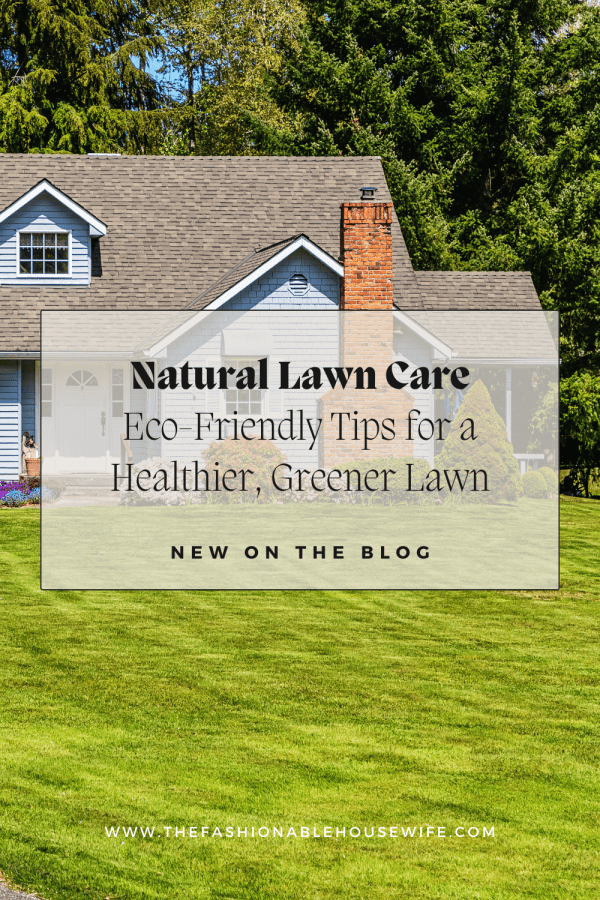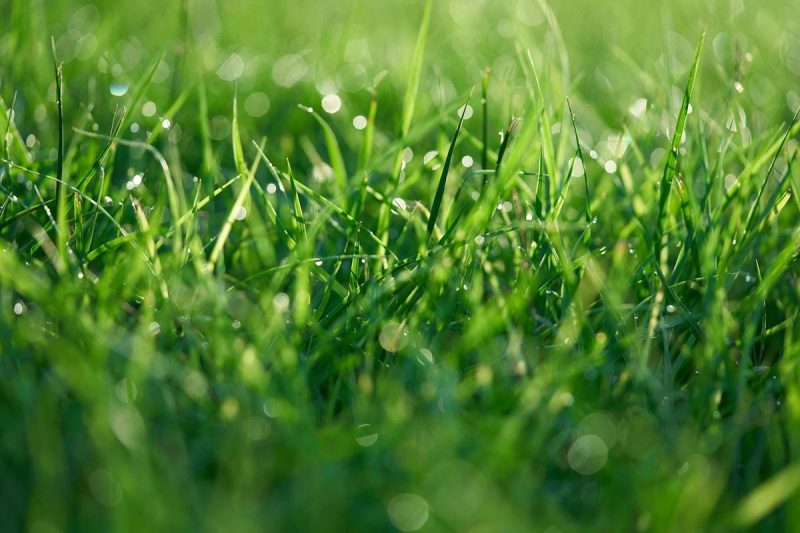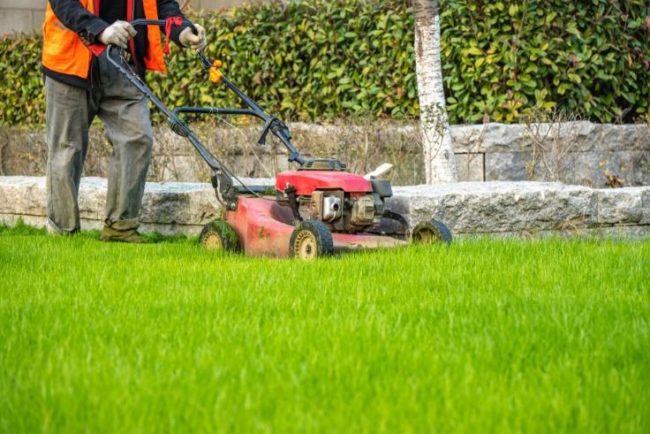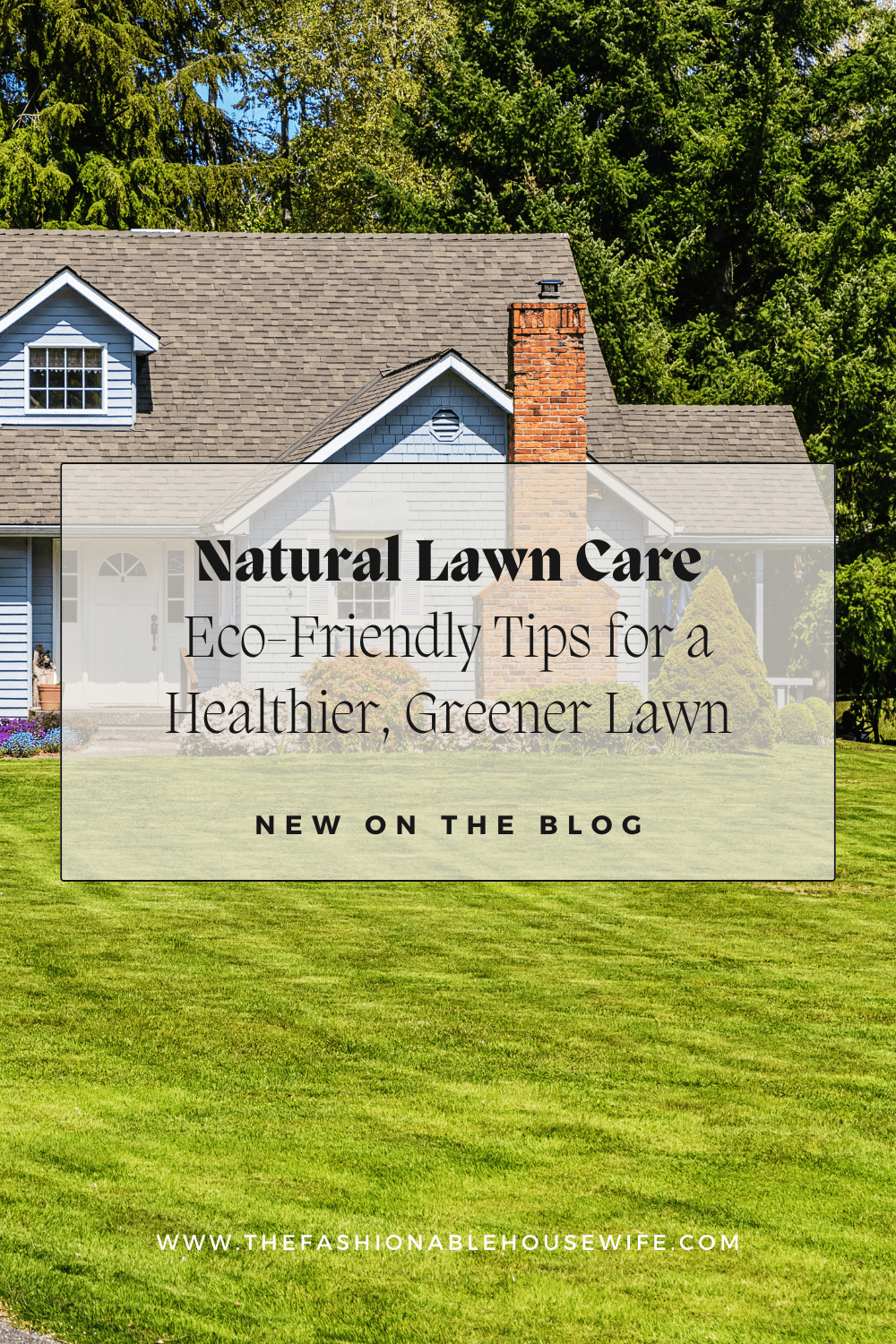Natural Lawn Care: Eco-Friendly Tips for a Healthier, Greener Lawn

Maintaining a lush, green lawn without chemical fertilizers or synthetic pesticides is not only possible but also better for the environment and your health. With a growing awareness of the impact that traditional lawn care products have on soil, water, and local ecosystems, homeowners are increasingly turning to natural alternatives.
1. Choose the Right Grass for Your Region
One of the most important steps in eco-friendly lawn care is choosing a grass variety that thrives in your local climate. This helps reduce the need for watering, fertilizing, and other maintenance.
That’s because native grasses or drought-tolerant species require less water and fewer nutrients, reducing the need for excessive irrigation and fertilization. For example, fine fescue is an excellent choice for cooler climates, while buffalo grass works well in warmer regions.

2. Feed Your Lawn Naturally
Instead of relying on synthetic fertilizers that degrade soil and pollute water, opt for organic solutions. Compost, worm castings, and organic lawn fertilizers work with the natural biology of the soil to provide essential nutrients. These slow-release fertilizers improve soil structure, increase microbial activity, and enhance the lawn’s ability to retain moisture.
Look for lawn care supplies that contain ingredients like alfalfa meal, bone meal, and feather meal—all of which promote root development and a rich green color without the risk of chemical runoff.
3. Water Smartly
Overwatering your lawn can cause more harm than good. It encourages shallow root systems, which are more vulnerable to drought. Eco-friendly lawn care focuses on deep, infrequent watering that encourages deep root growth. Watering early in the morning reduces evaporation, and using a rain gauge can help you determine when your lawn truly needs watering. You can also consider installing a rain barrel to collect water naturally.
4. Natural Lawn Pest Control
Insects and pests are a common challenge in lawn maintenance, but using chemical pesticides often harms beneficial organisms, birds, and pollinators. Instead, embrace natural lawn pest control methods that target pests while maintaining balance in your lawn’s ecosystem.
Beneficial insects, such as ladybugs and nematodes, are effective at controlling unwanted pests like aphids, grubs, and beetles. Companion planting around your lawn, with plants such as marigolds and garlic, can also help deter harmful insects.
5. Mow the Right Way
How you mow your lawn significantly impacts its overall health. Keeping your grass a bit taller—around three to four inches—can help shade the soil, reducing water evaporation and inhibiting weed growth. Additionally, leaving grass clippings on the lawn after mowing (a technique known as grasscycling) allows them to break down and return valuable nutrients to the soil.
6. Aerate for Healthy Soil
Over time, soil can become compacted, especially in high-traffic areas of your lawn. Compaction limits root growth and reduces water penetration, leading to poor lawn health. Aeration is a simple, eco-friendly technique that involves perforating the soil with small holes to allow air, water, and nutrients to penetrate deep into the root zone.
For homeowners who prefer a DIY approach, lawn aerators are available as hand tools or machine rentals. Regular aeration helps break up compacted soil, improve drainage, and encourage healthy grass growth.
7. Weed Control Without Chemicals
Weeds can be persistent, but chemical herbicides are not the only solution. Eco-friendly weed control techniques focus on prevention and manual removal. Keeping your grass taller, as mentioned earlier, shades out many weed species, reducing their ability to germinate.
If weeds do appear, hand-pulling them or using a weeding tool is an effective way to remove them at the root. Mulching your garden beds and around the edges of your lawn also helps suppress weed growth by blocking sunlight and retaining soil moisture.

8. Lawn and Garden Supplies for Eco-Friendly Care
Investing in the right lawn and garden supplies can make all the difference in maintaining a sustainable yard. From composters and rain barrels to natural fertilizers and tools, eco-friendly products are designed to help you care for your lawn without harming the environment.
Eartheasy offers a wide variety of sustainable lawn and garden supplies that are designed with both performance and environmental impact in mind. These products are made from natural materials and promote practices that align with organic, low-impact gardening principles.
A Greener Lawn, A Healthier Planet
Transitioning to eco-friendly practices not only benefits your lawn but also contributes to a healthier planet—so make the switch today. Whether you’re starting from scratch or transitioning an existing lawn, eco-friendly practices will help you achieve a healthy, green lawn while minimizing environmental impact.

